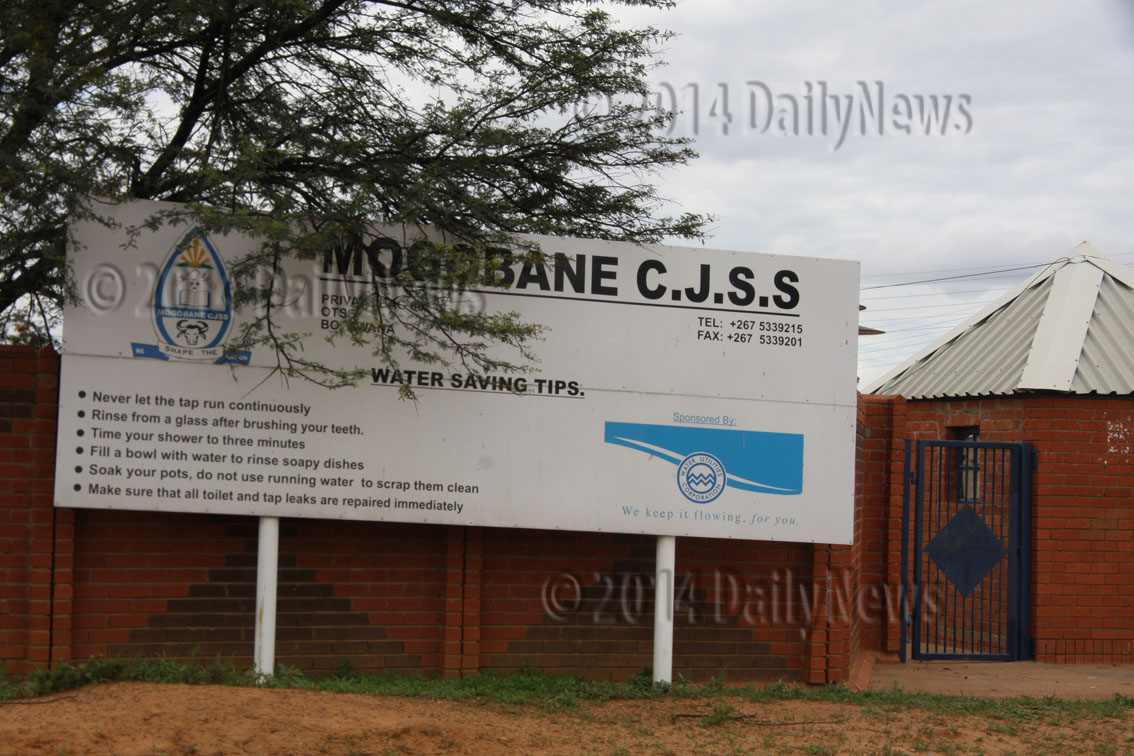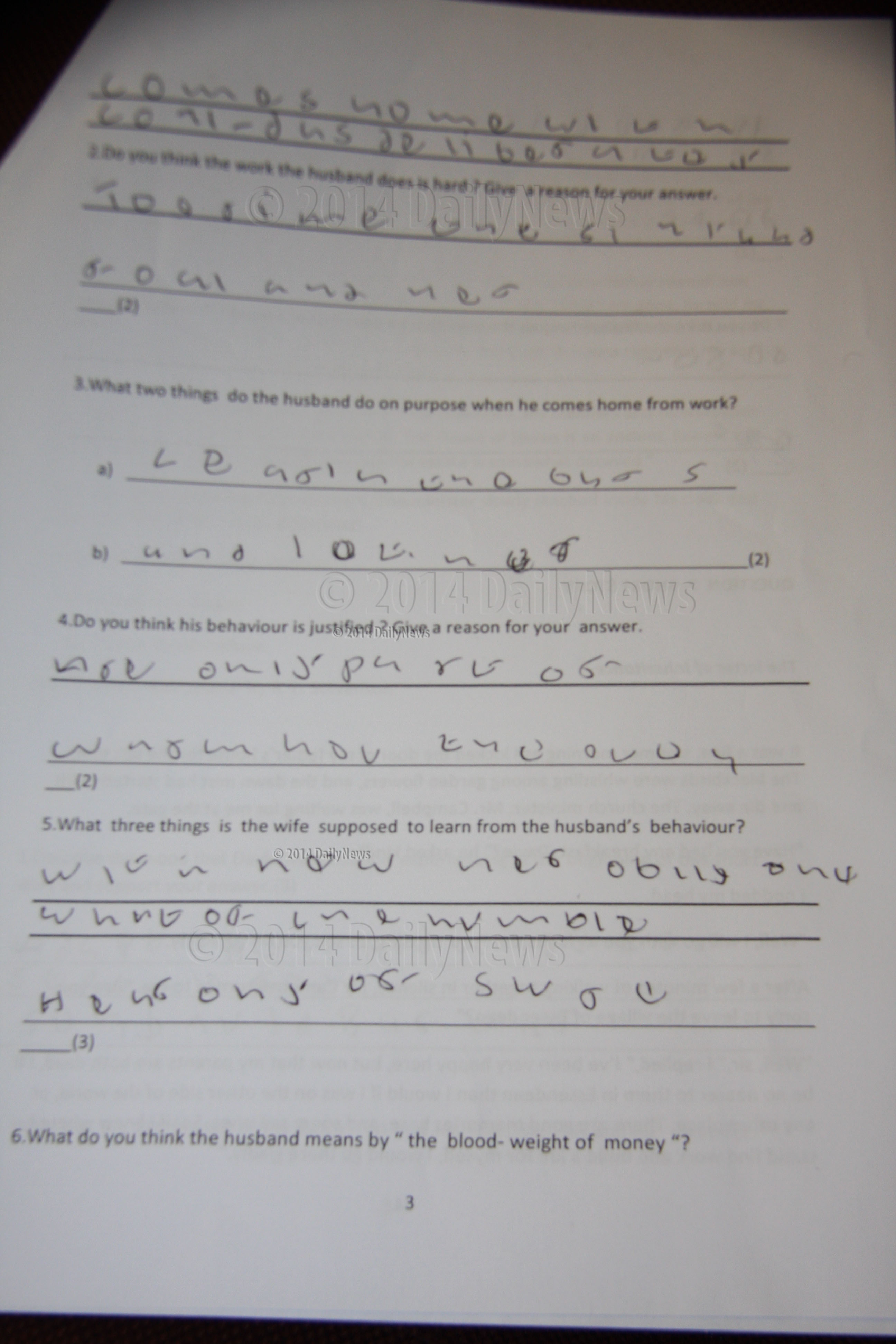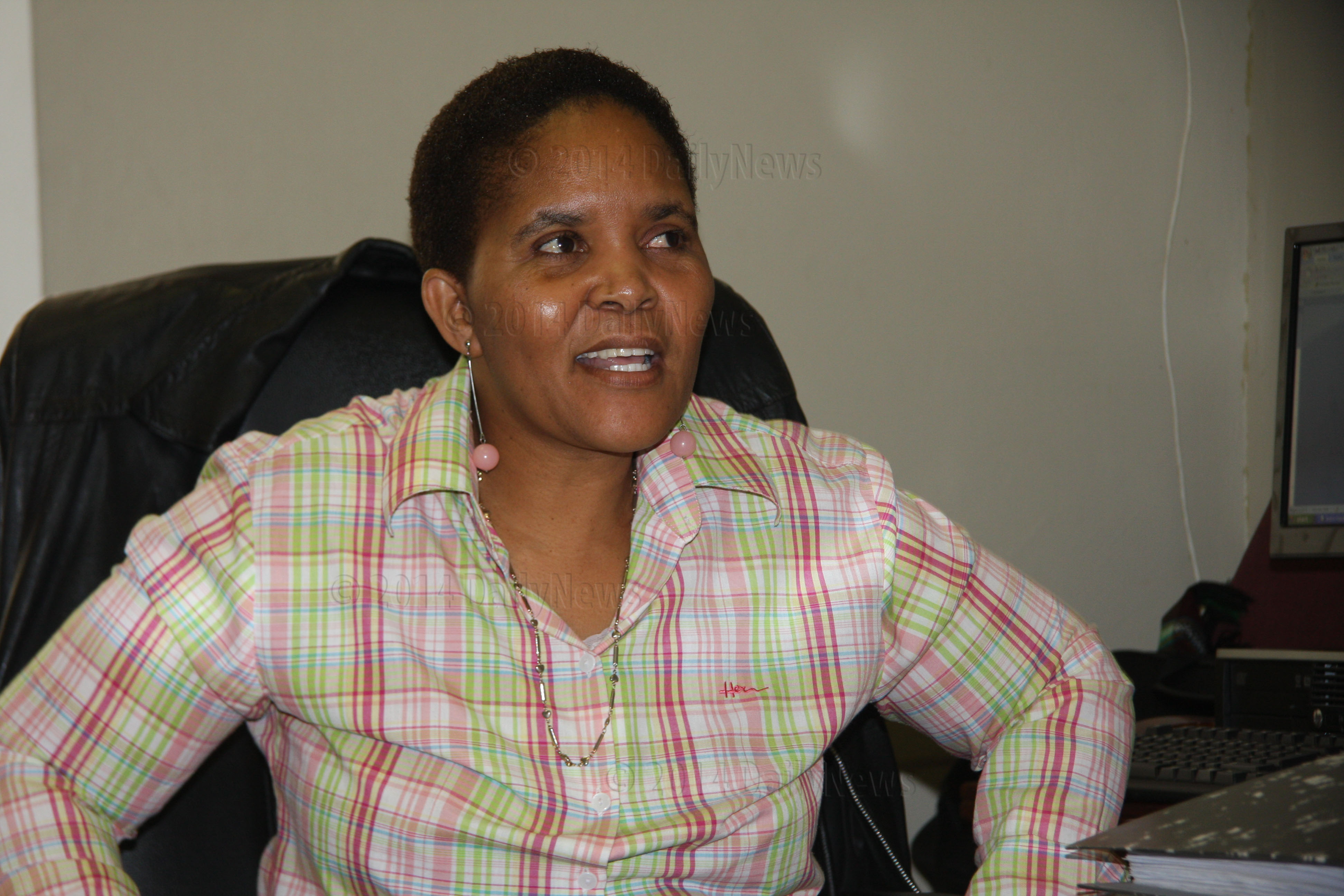Hardships of Mogobane special learners
11 Feb 2014
Jane (not real name) will be sitting for her Junior Certificate Examination at the end of the year. Unlike other learners, she will not be progressing to senior school.
Not that she does not desire that. She knows it simply will never happen. The crux is simple, Jane can neither read nor write.
And she is aware that she is not alone, nor the only one at school. There are others too, those who came before and the ones that will be coming after her. The school, Mogobane Junior Secondary School, in the South East District has for many years been admitting learners with special needs.
At first it accepted those who were referred to as slow learners, but as time went by, it started accepting learners who simply could not read and write. All the learners have completed the mandatory seven years of primary level education.
Despite the teachers’ efforts, this cohort simply will not grasp the basics. It is this group that Jane belongs with. Outside the classroom, she is a smart girl who easily interacts with other children. Come class or check up time, she will get a zero.
And that will be in practically every subject. This year, Mogobane JSS has 154 learners. Seven of them have special learning difficulty. That means they will not be able to read or spell their name.
Four of the children are in Form one while three are in Form three according to the deputy school head, Ms Lorato Mbulawa. The children are taught along with the rest of the learners and subjected to the same curriculum because the school does not have a special education teacher to assist the learners.
“We are just hoping for a miracle from God, they need someone trained to specifically deal with them,” she said in an interview. Nevertheless, Ms Mbulawa believes that there are trained personnel who can help the students, although it will be too late for those in Form three as they are about to sit for their final exams.
“They sit for the same examinations with others, even if they can be taught how to read and write, we are not sure they will pass,” said Ms Kefilwe Serite, a senior teacher responsible for staff development.
Ms Serite says they have in the past assessed and commended the concerned students to Tlokweng Education Centre so they would sit for examinations with special education specialists to assist them. However, the centre would respond very late and sometimes when the students have already left the school.
According to University of Botswana special education lecture, Dr Nelly Malatsi students who can hardly read or write will achieve nothing academically.
“I would not pin it to any particular name, it’s a learning disability. There is nothing that can be done at this point,” Dr Malatsi said. The only hope according to the academic is for learners to be accessed to determine something that is not academic that the leaner can excel in.
“The problem is that our education system is too academic,” she concluded. But Mogobane JSS principal thinks there may be hope if the learners are caused to repeat the classes they fail at primary school. She hopes the new direction that government has taken, namely to have failing children repeat will go a long way in helping them.
She is unhappy with what she sees as low participation by parents. “They never come to check how their children are performing,” she says
She notes their own investigations have shown that most parents have left their children with grandmothers who are not conversant with today’s education needs. Add to this the fact that some households are led by children, and you have a gigantic problem as a school.
There is also the problem of those who walk as many as 18 kilometres to school every day. They arrive at school late and tired and are hardly able to concentrate in class as a result.
But, Mogobane CJSS plods along. The school has been pegged at number 37 in the recently released Junior Certificate examination.
Out of the 48 learners who sat for examinations at the school, seven got grade B, 17 got C, another 17 got D, three got E while only four got U.
All the children with grades B to D have been accepted at senior secondary school, giving the school an 85 per cent transition rate. ENDS
Source : BOPA
Author : Bonang Masolotate
Location : RAMOTSWA
Event : Feature article
Date : 11 Feb 2014









